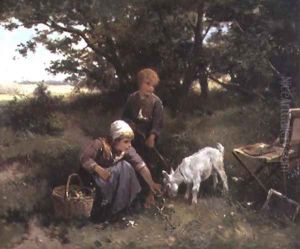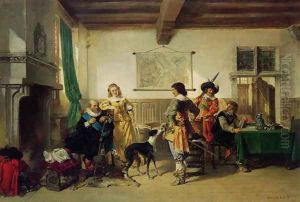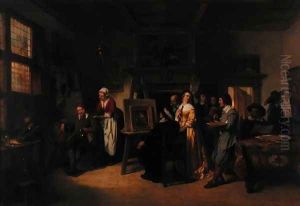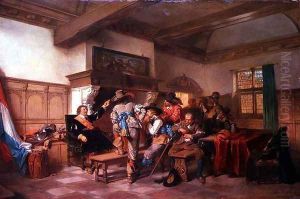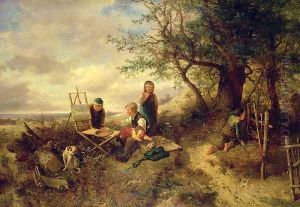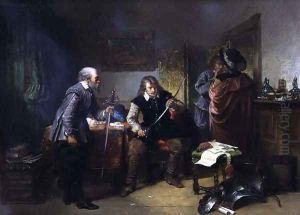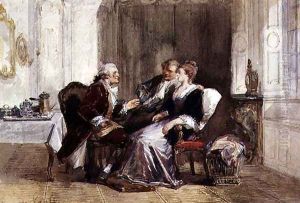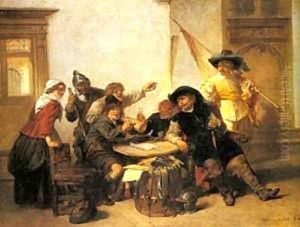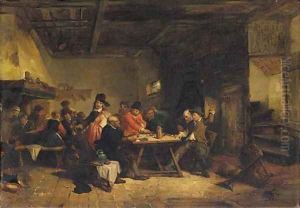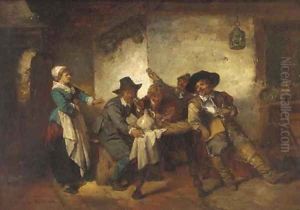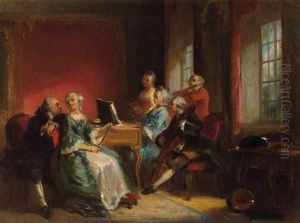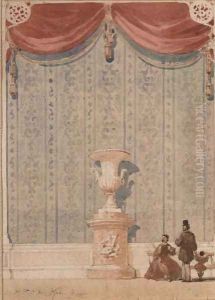Herman Frederick Carel Ten Kate Paintings
Herman Frederick Carel ten Kate was a Dutch painter, born on February 16, 1822, in The Hague, Netherlands. He was part of the mid-19th century European art movement, specializing in genre painting, which depicted scenes of everyday life with great detail and vivid storytelling. Ten Kate was particularly known for his historical and military scenes, often set in the 16th and 17th centuries, showcasing his fascination with the past and its customs, attire, and military history.
Herman's family was artistically inclined, with both his brother and father being recognized artists in their own rights. This environment fostered his artistic talents from a young age. Ten Kate studied at the Royal Academy of Art in The Hague, where he honed his skills and developed a keen interest in historical accuracy and detail, which would become a hallmark of his work.
Throughout his career, Ten Kate enjoyed considerable success and was highly regarded by his contemporaries. His works were sought after by collectors and exhibited in many prestigious galleries across Europe. Despite the popularity of genre painting waning towards the end of the 19th century, Ten Kate remained committed to his style and subjects, contributing significantly to the documentation of historical themes through his art.
Ten Kate's technique was characterized by fine brushwork and a rich palette, which brought his historical scenes to life with a remarkable sense of realism and vibrancy. He was adept at capturing the nuances of human expressions and the intricacies of the costumes and settings of his chosen era.
After a prolific career, Herman Frederick Carel ten Kate died on March 26, 1891, in The Hague. His legacy continues through his contributions to Dutch art and genre painting, with his works still being admired for their historical value and artistic merit. Ten Kate's paintings are preserved in several museums and private collections worldwide, serving as a testament to his skill and dedication to the portrayal of historical narratives.
